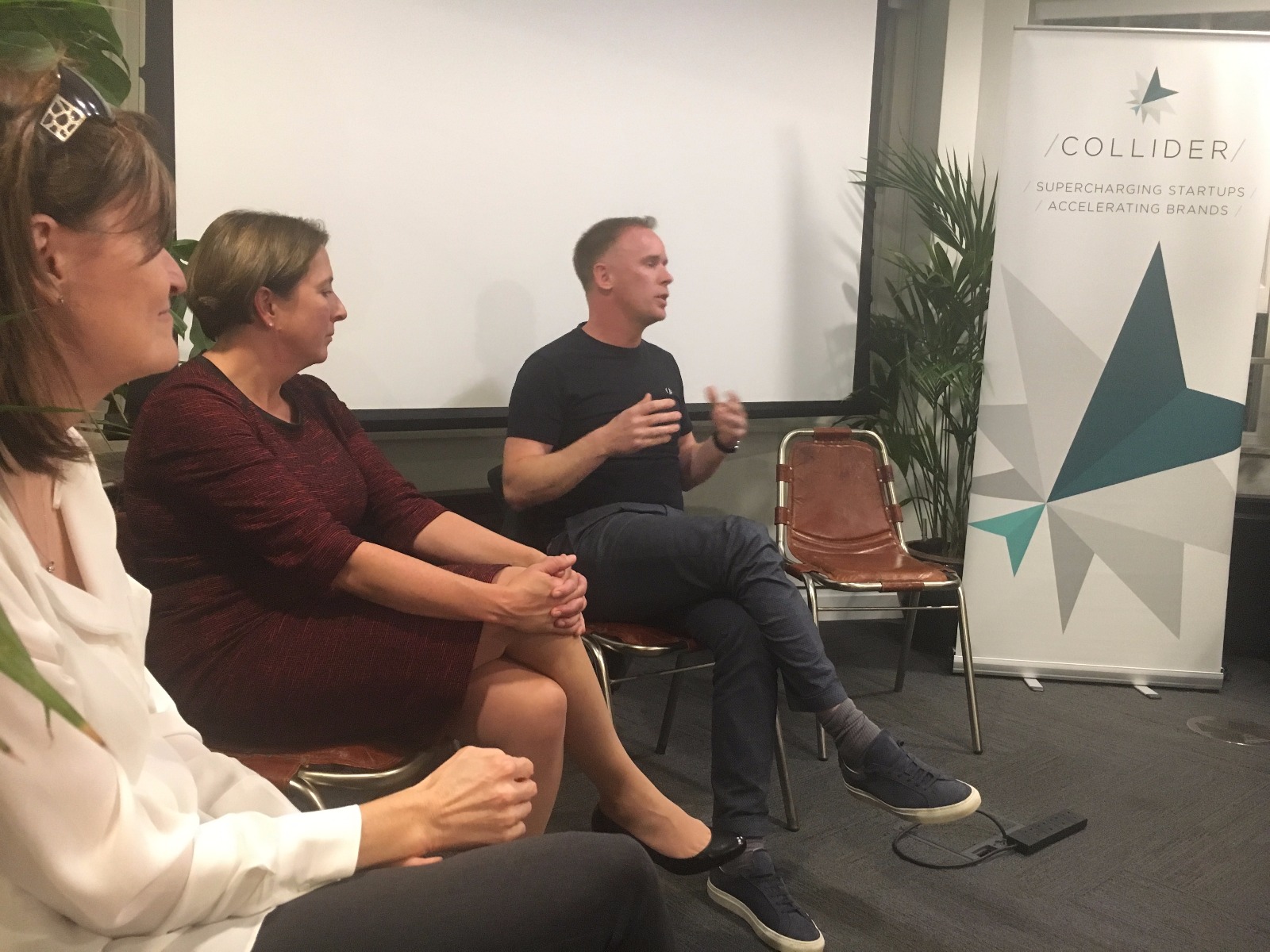Recently the Collider startups were given a private workshop with Sokratis Papafloratos, who took them through the experience of being acquired by a large brand. This is something that Sokratis has personal experience in as in 2006 he co-founded TrustedPlaces.com, one of the first user-generated review sites in the UK. He managed to raise half a million pounds in 2007, with even more funds in the following year. Things continued to go well for TrustedPlaces as the user interface received high praise and awards, including the Best Startup in the UK in 2009. In 2010 a positive outcome was realised when Yell Group/Hibu acquired the company.
Read on to see what insider tips he shared.
"Last week I had the opportunity to discuss the lessons I learned from exiting my first startup (TrustedPlaces to Yell Group/Hibu) with a bunch of startups at the Collider accelerator.
Here’s a list of points I shared with them about the exit process:
Preparing from the start
1. The process starts from day 1
Don’t interpret this as building to flip or being in for the wrong reasons. It may take one year from start to exit, it may take ten. Be thorough on on every transaction and contract, keep your documentation in order and always have exit as an agenda item in your board meetings. (You may not spend any real time discussing, but having it there will focus you and your board).
2. Build relationships early
Selling your business will often be the result of a personal relationship, which you cultivated over a number of years. Don’t hesitate to reach out to competitors and incumbents in your space early on.
3. Skill up
You will be dealing with pros on the other side. They know the tricks of the trade and have done this before. You haven’t. The key skill to master is negotiation, which is useful in running your business anyway. I loved ‘Secrets of Power Negotiating’ for its playbook approach and would highly recommend it.
4. Manage your cap table and funding terms
This is the hardest one to get right, but you need to be aware that the capital you raise and type of investor you raise from will often dictate possible/desirable outcomes. Watch out for liquidation preferences with >1 multiple and make sure you understand what ‘participating preferred’ means.
Preparing just before the first real conversation
You will rarely get someone calling up saying ‘I want to buy your business now!’. Chances are you will have a few informal chats with someone at the right position, you will receive and send the right signals and at some point things will get serious. The transition from flirting to getting in bed can happen quicker than you think and you need to be ready for it.
5. Think deeply about the outcome you want
It seems obvious, but it’s very easy to let this one slip or not think deep enough. As a friend had told me ‘you’ll only sell your business once’. Make sure you get what you want out of the exit.
6. Align with your investors
You won’t get the process to work unless everyone is behind it. Have a very clear common outcome agreed with your investors and get as much help from them as you can. Howzat Media (Hugo, Sascha and Lars especially) were incredibly helpful. However, I should have done a better job getting more help from them by preparing better and doing more of the following.
7. Rehearse, rehearse, rehearse
It may sound silly, you will cringe, but just get it done. Run through the playbooks, visualize the meetings (who you take with you and who will be there from the other side), how you respond to their offer…get as much prep as you can afford and get your investors to help you with it.
Managing the process
8. Understand the journey
Here’s what a typical one looks like.
- First conversation
- Deliberations
- Verbal offer
- Emailed offer
- Deliberations
- Final offer on email
- Heads of Terms – this is where things get real. Anything else is foreplay.
- Due diligence and negotiating of documents
- Completion
It took us nearly two months from heads of terms to completion and a similar amount of time for the previous steps.
9. Prepare your lawyer and accountant
Give them as much warning as you can so they can be prepared. Talk to them to fully understand the different types of acquisition (asset vs equity sale) and their respective tax implications. Go back to your articles of association and firm up their understanding before conversations get real (points 5 & 6).
10. Get acquirer to agree to cover legal costs if they walk away
They should be happy to do this if they’re serious. Agreeing the specifics will be the first hurdle you need to negotiate and agree. Have fun! You only have a million more such points to cover.
11. Negotiate the highest sounding title you can get away with.
It will matter when it comes to getting things done in your new organization.
12. Keep everyone focused on the business
Not all acquisition conversations end up in actual acquisitions. The biggest mistake you can make is lose focus and distract your team. An aborted acquisition can hurt morale so make sure you share with the people you need to, when you feel the time is right and set the expectations at the right level.
13. Take care of yourself
Stay healthy and in shape. Responding to an email the next day won’t kill the deal and most things that seem huge and massively important are often not. Being relaxed and composed will help you run a smoother process and get a better deal in the end.
I have made mistakes on most points above, which I hope the post helps you avoid. If you’ve picked up any lessons yourself or would like to go deeper on anything mentioned here, hit me up on twitter or leave a comment below. This is just an overview on the points I feel are the most important for a first time founder. At some point I’d also like to cover the negotiation and management of the post-acquisition phase and expand on how to create competitive tension before and during the acquisition period."
Thank you Sokratis for letting us share your tips, and for more information, you can visit his site here.











